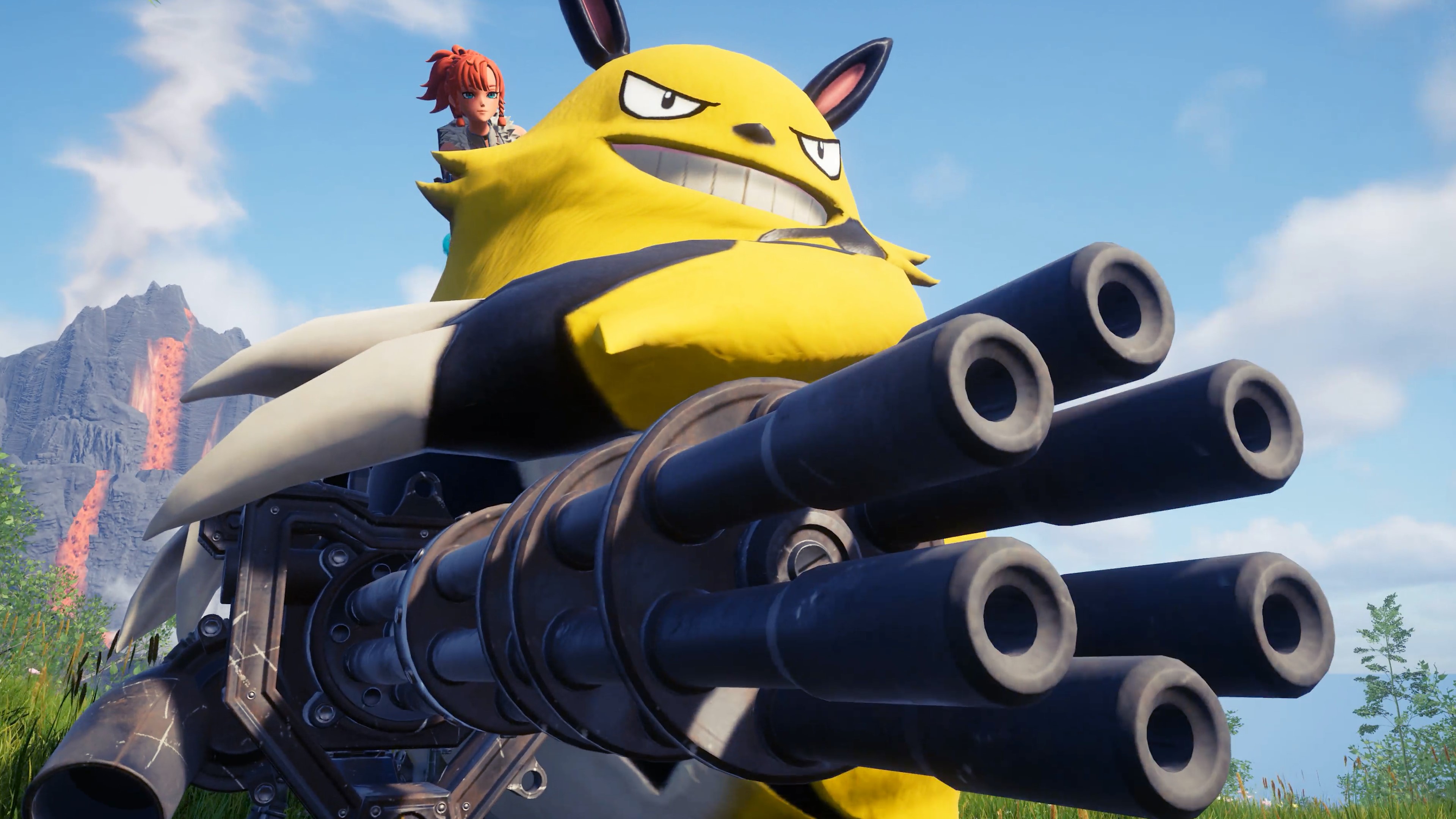Videogame IP lawyer says Nintendo could've been planning its Pocketpair lawsuit before Palworld even released: 'If you know who you're going to go sue, you can draft claims to target them'
Nintendo had filed amendments for its patents in the run-up to Palworld's launch.

Last week, Nintendo released a statement announcing a patent lawsuit against Palworld developer Pocketpair. Given Nintendo's infamous reputation for applying overwhelming legal pressure, the announcement led plenty of us to wonder when in the eight months since Palworld's release Nintendo might've started setting its litigation gears in motion. According to patent lawyer Kirk Sigmon, Nintendo might've been planning its patent lawsuit before Palworld even launched.
While Nintendo hasn't publicized which patents it's accusing Pocketpair of infringing, the generally-held assumption is that Nintendo's basing its lawsuit around patents it filed on creature-capturing and riding mechanics during the development of 2022 Switch game Pokemon Legends: Arceus. During an interview with PC Gamer covering the Palworld lawsuit, I asked Sigmon to explain the amendments, continuations, and divisional applications that those patents had received, according to US and Japanese patent databases.
A patent continuation, called a divisional application in Japan, allows a patent holder to file for additional patent claims and intellectual property protections on the concepts covered by the original patent. "Let's say a filing describes throwing a Poké Ball, rideable objects, and something else. If the original patent claims only covered throwing a Poké Ball, they file a divisional application and say, 'We're going to now draft claims that relate to rideable objects. It's a little bit different, but we're going to go after that,'" Sigmon explained.
One of the benefits of divisional applications, Sigmon said, is that they provide the patent holder—Nintendo, in this case—with an opportunity to optimize the definitions of their patent claims for eventual lawsuit assertion. In other words, if you're Nintendo and you notice your competition's about to release a product that's similar to a patent you hold, you can start drafting divisional patents in advance to arm yourself with the best possible tools for punishing those competitors with a patent lawsuit.
In other other words, divisional patents give you a chance to do the patent law equivalent of 4D chess.
"What's very common here, and why a lot of Japanese patent attorneys are suspecting that [Nintendo is trying to assert its divisional patents in its lawsuit] is because, as you go through this process and file divisionals, continuations, whatever, you are drafting claims that are more and more tailored towards assertion," Sigmon said. "You know more about what you can get and what you can't, and what you can also do is, if you know who you're going to go sue, you can draft claims to target them."
Looking at the dates on Nintendo's Japanese patent filings, I'd noticed Nintendo had filed a written amendment for the original patent on October 11, 2023, before filing a divisional application on December 4, 2023. Both filings would've landed between the 2022 release of Pokemon: Legends Arceus and before Palworld's January 2024 launch. Additionally, those filings would've taken place after Pocketpair had started releasing Palworld gameplay footage showing catching and riding mechanics, like the Summer Game Fest trailer from June 2023—meaning Nintendo theoretically had time to shape its additional filings to fine-tune its claims around any perceived similarities.
In our interview, I asked Sigmon whether Nintendo might've been sculpting its patent filings in anticipation of an eventual lawsuit against Palworld.
Keep up to date with the most important stories and the best deals, as picked by the PC Gamer team.
"If they have good patent attorneys and they have good communication in the company, then yes," Sigmon said. "Sometimes the reality is that the patent attorneys don't get to talk with the developers a lot, just because they're busy or hard to get a hold of. But if they were aware of Palworld, or if they were concerned about it, it would not surprise me if they went back and told their patent attorneys, 'We want claims that we think are prepared to handle them.'"
Lincoln has been writing about games for 11 years—unless you include the essays about procedural storytelling in Dwarf Fortress he convinced his college professors to accept. Leveraging the brainworms from a youth spent in World of Warcraft to write for sites like Waypoint, Polygon, and Fanbyte, Lincoln spent three years freelancing for PC Gamer before joining on as a full-time News Writer in 2024, bringing an expertise in Caves of Qud bird diplomacy, getting sons killed in Crusader Kings, and hitting dinosaurs with hammers in Monster Hunter.

